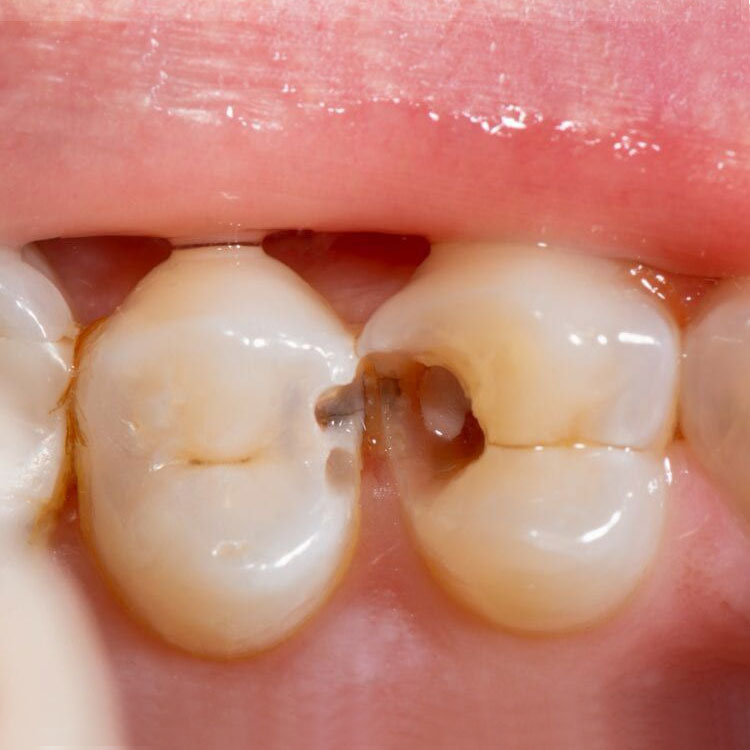What Are Dental Cavities/Tooth decay?
Cavities are damaged areas in the hard outer layer (enamel) of teeth caused by acids produced by bacteria. They form small openings or holes due to decay from plaque buildup, leading to tooth deterioration if untreated. Proper oral hygiene and dental care help prevent and treat cavities.
Causes of Dental Cavities
- Plaque Buildup: Harmful bacteria in the mouth form a sticky film called plaque. If not removed regularly through proper oral hygiene practices, plaque accumulates on teeth, leading to decay.
- Sugary Foods and Drinks: Foods high in sugar and carbohydrates provide fuel for bacteria in the mouth, leading to increased acid production, which attacks tooth enamel.
- Poor Oral Hygiene: Inadequate brushing, flossing, and rinsing allow plaque to accumulate, promoting the development of cavities.
- Acidic Foods and Beverages: Consuming acidic items like citrus fruits and sodas can weaken tooth enamel over time, making teeth more susceptible to decay.
Signs and Symptoms of Dental Cavities
Recognizing the signs of dental cavities is crucial for early detection and timely intervention:
- Tooth Pain or Sensitivity: Sensitivity or pain while consuming hot, cold, or sweet foods and drinks.
- Visible Holes or Pits: Small holes or dark spots on the tooth's surface.
- Tooth Sensitivity: Increased sensitivity to temperature changes.
- Discoloration: Visible dark spots or staining on the tooth.
Prevention of Dental Cavities
Prevention is key to maintaining good oral health and preventing cavities:
- Regular Dental Checkups: Visit your dentist for routine examinations and professional cleanings to catch cavities in their early stages.
- Effective Oral Hygiene Practices: Brushing twice a day, flossing daily, and using fluoride toothpaste to remove plaque and prevent decay.
- Balanced Diet: Limit sugary and acidic foods. Incorporate calcium-rich foods to promote strong teeth.
- Fluoride Treatments: Professional fluoride applications strengthen enamel, making it more resistant to decay.
Treatment Options for Dental Cavities
If cavities develop, prompt treatment is necessary to prevent further damage:
- Fillings: Dental fillings are used to fill the cavities and restore the damaged tooth structure. Composite or tooth-coloured fillings blend with the natural teeth, providing both functionality and aesthetics.
- Dental Crowns: For larger cavities or weakened teeth, dental crowns are placed to cover and protect the tooth, restoring its strength and appearance.
- Root Canal Treatment: If decay reaches the tooth's pulp, a root canal may be required to remove the infected tissue and save the tooth.
- Preventive Care: Besides treating existing cavities, dentists provide guidance on preventive care to avoid future occurrences.


